The stars seem to be finally aligning in favour of women’s cricket, with the first IPL for female players holding an auction next week and young talent fired up after last weekend’s U-19 Women’s T20 World Cup win. Closer home, things are hotting up from Mahavir Nagar to Juhu Church Rd
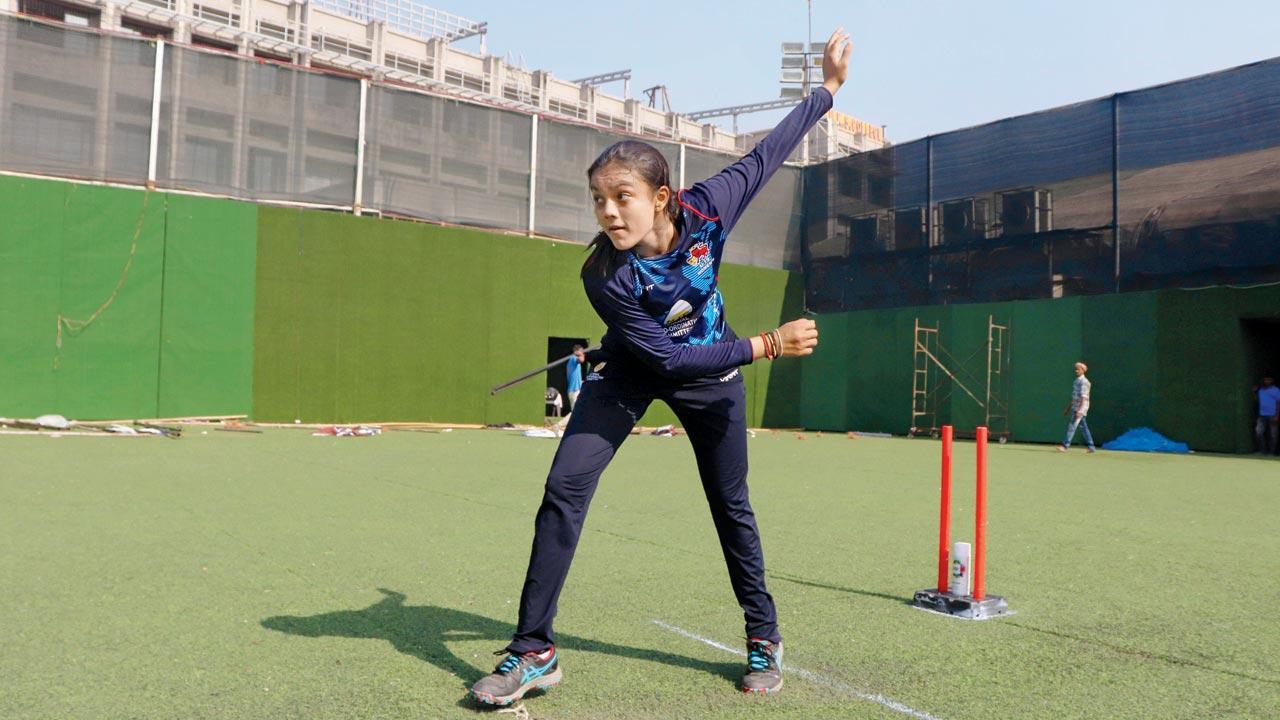
Pacer Hurley Gala training at the Negev Cricket Academy, JVPD ground, Juhu. Gala was the only player from Mumbai to make it to the India U-19 Women’s T20 World Cup squad. Pic/Anurag Ahire
The dust has barely settled on the ground fronting Dr Baliga Nagar CHS in Dharavi, when Simran Shaikh walks out of the basti she has lived in for 21 years. She’s wearing black trousers and a tea green shirt, her hair pulled behind in a tight ponytail. A cricket bat is ensconced in her gloved hands; she lifts it to try a stroke, and cuts into the air. The neighbouring kids, who until this time, were busy playing a game of catch, stop in their tracks. One of the boys rushes towards her, “Didi, ball laun?” “Season hain?” she asks. His face drops, but only for a moment: “Nahin, tennis.” She nods, “jaa leke aa.”
Almost instantly, the children fan out—someone takes position behind the wicket; a few scatter around the rectangular block to field; even the goats seem to have cleared the path. The bowler is yet to return with the ball, but everyone knows Simran didi’s game is on. She senses their excitement, and plays along.
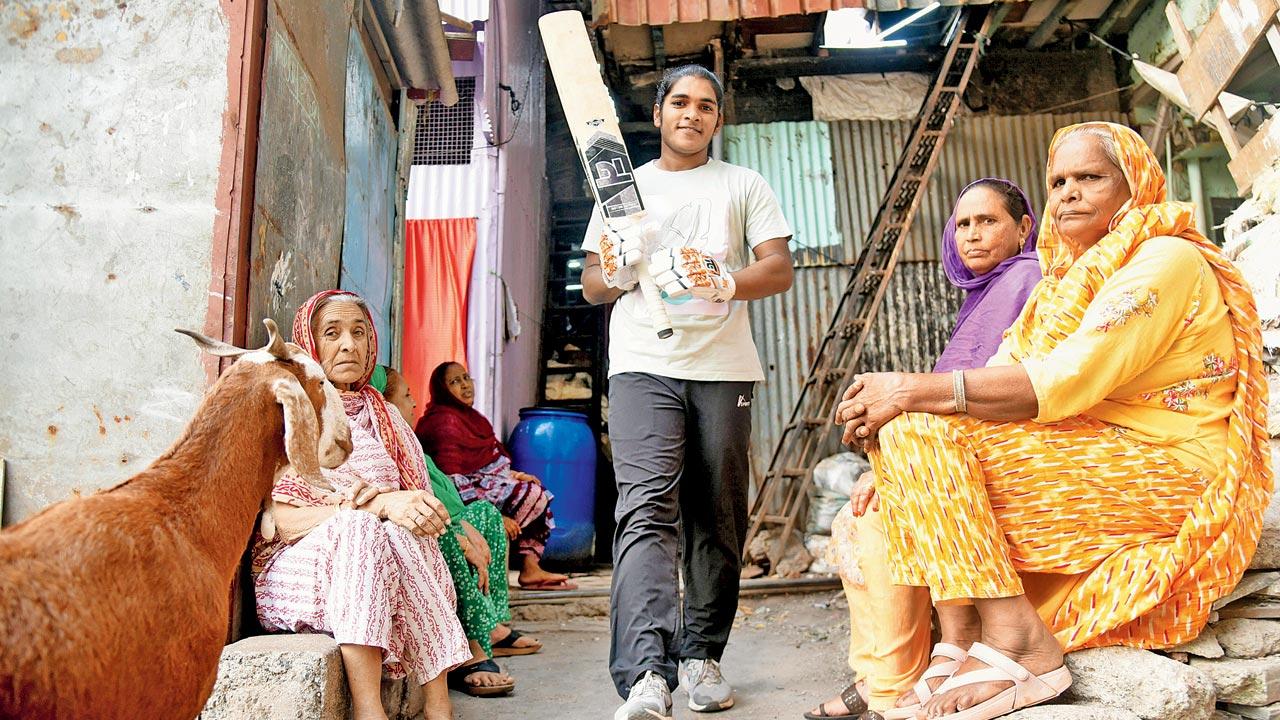 Simran Shaikh, who represented India ‘C’ at the Senior Women’s T20 Challenger Trophy in Raipur last November, gears up for a game of cricket, watched by her family in Dharavi’s Azad Nagar. The 21-year-old used to play gully cricket in the neighbourhood, before a relative encouraged her to play professionally. Pic/Sameer Markande
Simran Shaikh, who represented India ‘C’ at the Senior Women’s T20 Challenger Trophy in Raipur last November, gears up for a game of cricket, watched by her family in Dharavi’s Azad Nagar. The 21-year-old used to play gully cricket in the neighbourhood, before a relative encouraged her to play professionally. Pic/Sameer Markande
Ten years ago, Shaikh was one of them. “Kitne kaach tode usne... kitni gaaliya khayi,” her mother Akhtari Bano tells us, when we meet the Shaikh family in their shanty. “She would play with the big boys. When she smashed the ball, it caused a ruckus. The neighbours would come home to pick a fight, and tell me, ‘If she is so crazy about the game, send her to play on the ground. Why trouble us?’ We would hear the rants quietly. What else could we do? Sometimes, I’d shout at her. But there was no stopping Simran. She was obsessed with cricket.”
Today, the same neighbours “give her dua”. “Humare Dharavi kaa naam roshan karegi,” they tell her father Jahid Ali Shaikh.
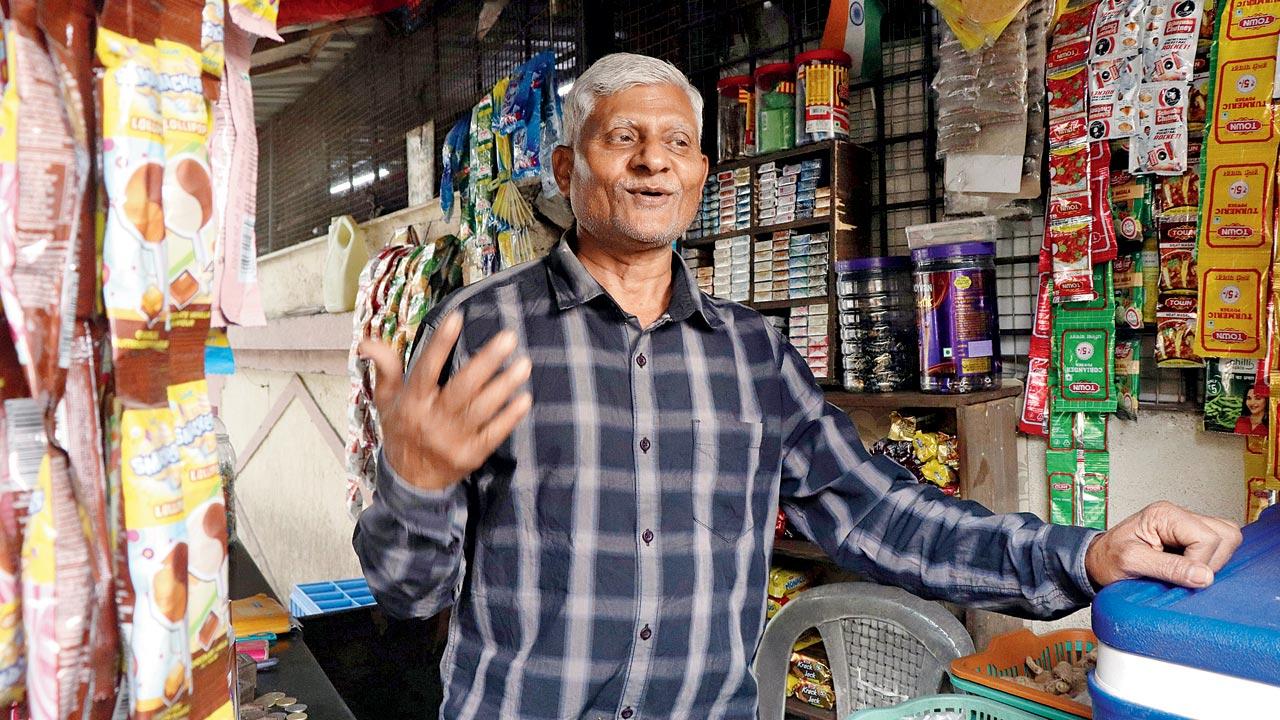 Radha Yadav’s father Omprakash Yadav, who originally hails from Jaunpur district in Uttar Pradesh, has been running a grocery stall in Kandivli’s Mahavir Nagar for 30 years. Pic/Anurag Ahire
Radha Yadav’s father Omprakash Yadav, who originally hails from Jaunpur district in Uttar Pradesh, has been running a grocery stall in Kandivli’s Mahavir Nagar for 30 years. Pic/Anurag Ahire
Batter Shaikh, who represented India ‘C’ at the Senior Women’s T20 Challenger Trophy in Raipur last November, doesn’t have a godfather in the game. Nor does she have the big bucks to sprint forward. “What she has is talent,” says an assured Akhtari Bano.
There’s a whiff of confidence in the air. The Shaikh residence walled by sheets of patra, which were only recently given a fresh coat of paint, is still buzzing with news of India’s win at the finals of the inaugural ICC U-19 Women’s T20 World Cup last Sunday. “Our dream is to see our Simran join the World Cup squad,” the parents say of their daughter, who currently plays for the senior Mumbai women’s team.
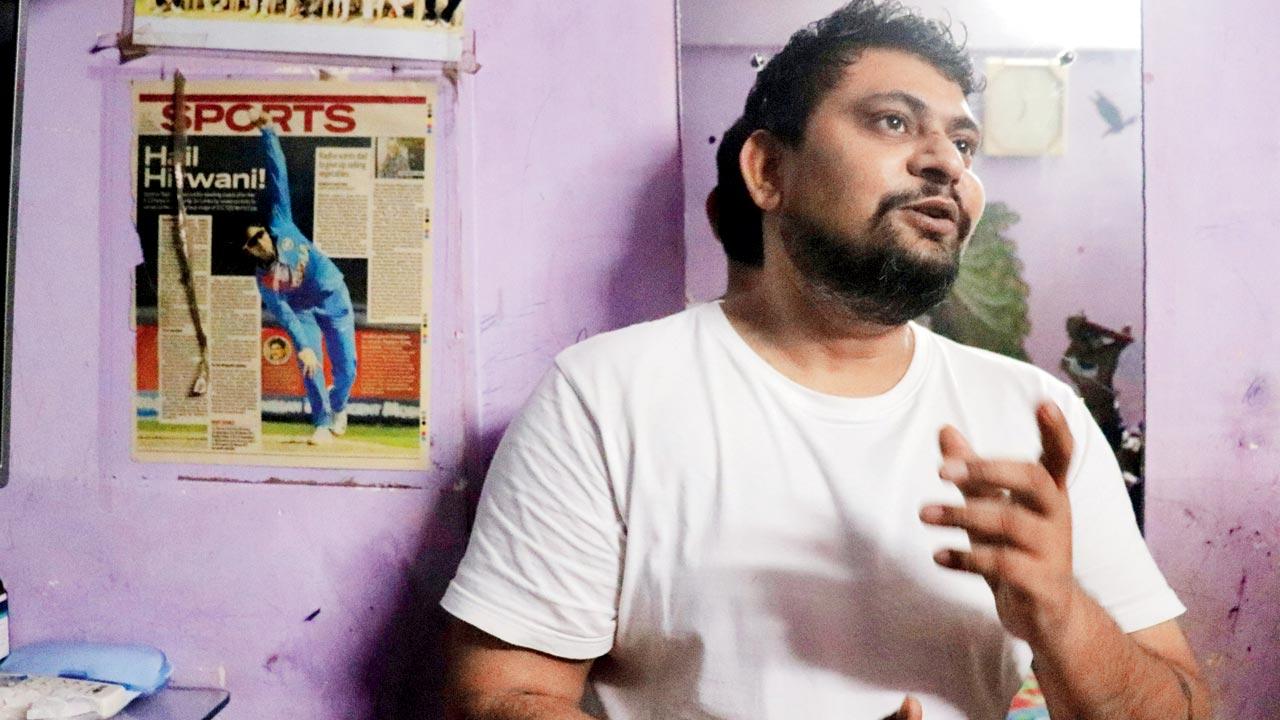 Rahul Yadav, Radha Yadav’s brother
Rahul Yadav, Radha Yadav’s brother
Women’s cricket in India is riding on a new wave. And it’s not just the U-19 World Cup win that’s spurring hope. The Board of Control for Cricket in India’s (BCCI) announcement of the Women’s Premier League (WPL) last month was a masterstroke, bringing in rightly-deserved attention to the sport. Touted as a “game changer” that will revolutionise women’s cricket in the country, the WPL is already raking in the moolah—the BCCI earned a massive R4,600 windfall, as it auctioned five team franchises (Mumbai, Ahmedabad, Bengaluru, Delhi and Lucknow) for the first season, scheduled for March. BCCI secretary Jay Shah had later tweeted that the bidding for WPL had broken the records of the inaugural Men’s IPL in 2008. “The #WPL would bring necessary reforms in women’s cricket and would ensure an all-encompassing ecosystem that benefits each and every stakeholder,” he said.
For players like Simran, who last week gave her career-best performance—97 of 86 balls against Rajasthan—this could also be the big boost she needs to continue her game. Shaikh, who shares a room with six siblings, her parents and grandparents, is nervous about the upcoming Women’s IPL auction, scheduled for February 13. According to reports, over 1,000 players have already signed up, of which 90 players will be sold. Each team will be allowed to have a maximum of 18 players.
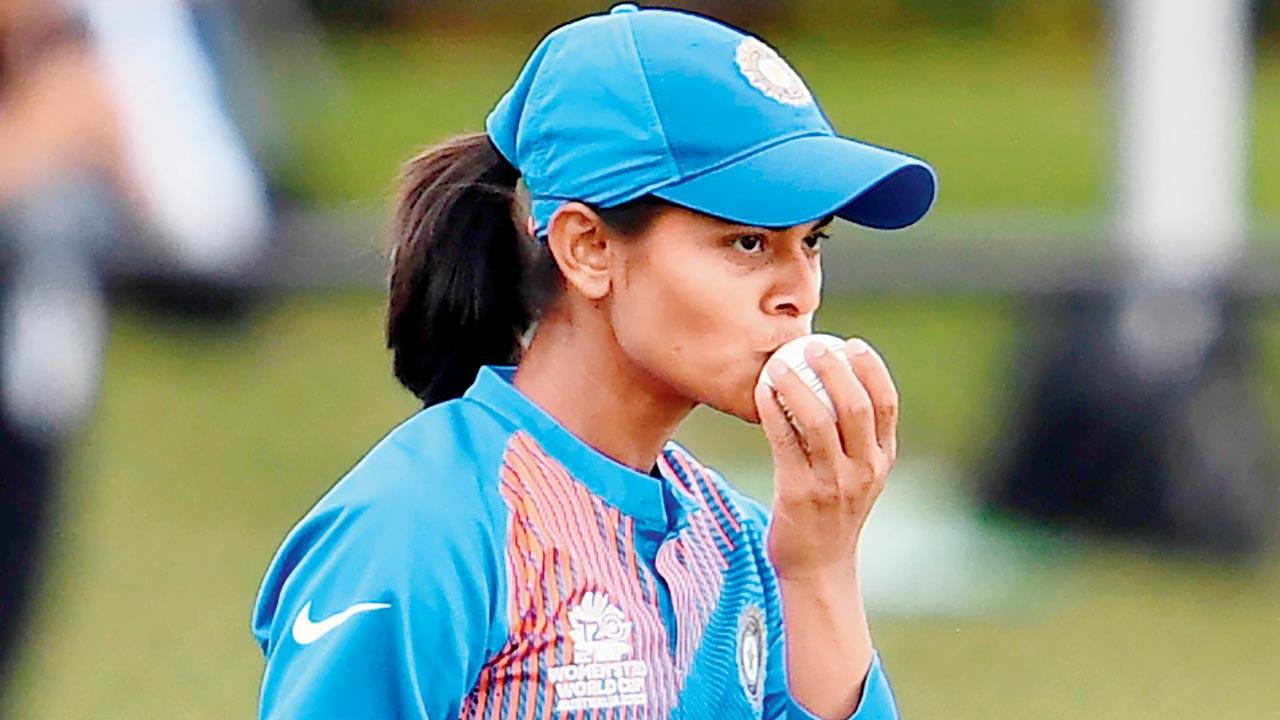 In this file pic, Radha Yadav kisses the ball after taking a catch to dismiss New Zealand’s Sophie Devine during the Twenty20 women’s World Cup cricket match between New Zealand and India in Melbourne on February 27, 2020. Pic/Getty Images
In this file pic, Radha Yadav kisses the ball after taking a catch to dismiss New Zealand’s Sophie Devine during the Twenty20 women’s World Cup cricket match between New Zealand and India in Melbourne on February 27, 2020. Pic/Getty Images
She started training late in her career, when she was 15. “Until then, I used to play gully cricket in the neighbourhood,” she recalls. It was a relative, who encouraged her to join the United Club at Cross Maidan. “Within a few months, I registered for the summer camp at Shivaji Camp, and from there I got selected to play for the U-19 Mumbai and later, the senior team,” she says, adding that her coaches supported her with free kits and training at different points. “Sanjay Gaitonde sir was most helpful.”
Her father Jahid Ali, who is originally from Gonda in Uttar Pradesh, has been without a steady job since 2014. Over a year ago, he underwent a bypass surgery. “A lot of people told us, ‘how can you allow your daughter to play cricket? This is not allowed in our community’. We’ve never stopped her from dreaming, even though we don’t have the money.”
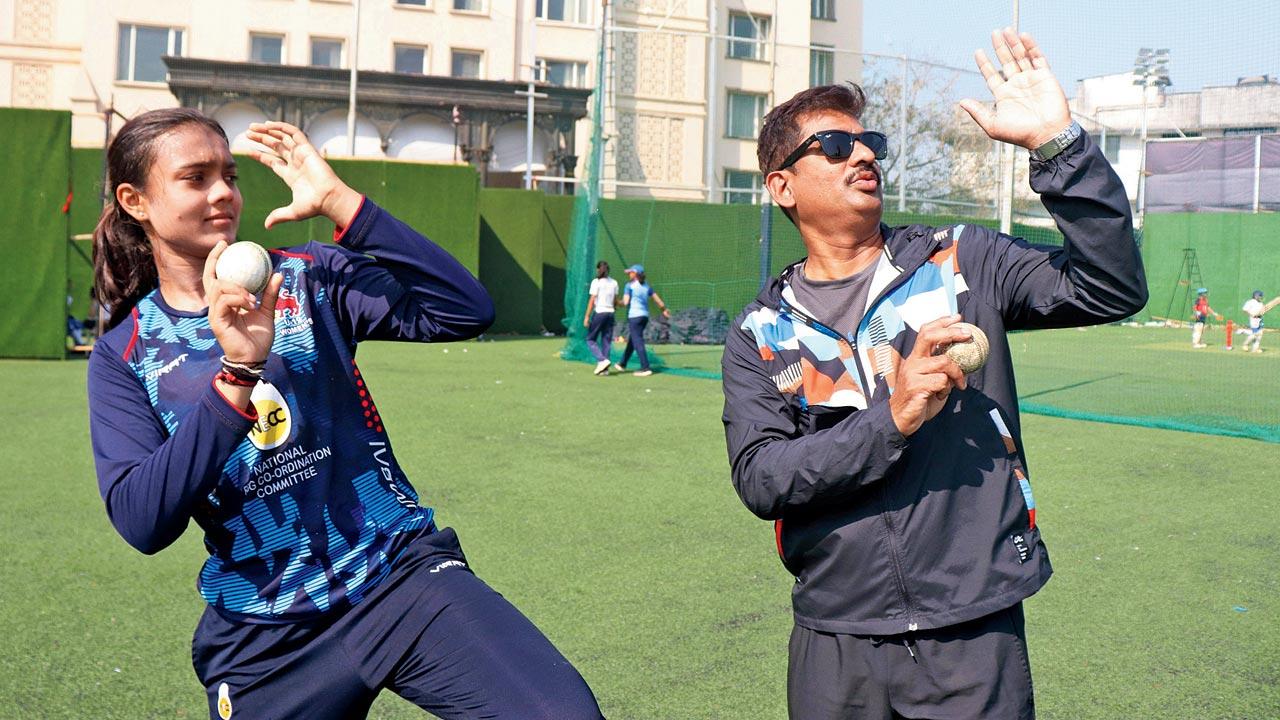
Hurley Gala training with coach Rodrigues at the Negev Cricket Academy, JVPD ground, Juhu. Pic/Anurag Ahire
In Juhu, another cricketing genius is scripting her own success story. Her coach Ivan Rodrigues says she has the potential to become the “world’s fastest bowler”. Sixteen-year-old Hurley Gala, who was the only player from Mumbai to make it to the U-19 World Cup squad, had a small setback last month, when she suffered a laceration in her right thumb, and was ruled out from the rest of the tournament. Her father Tanmay Gala was on the field when it happened. He tears up while recounting the incident, when we meet him and his wife at their Juhu Church Road, where Gala first learned to play the sport. “She was disappointed, but she took it in her stride.”
Gala, born into a Gujarati Jain family that has seen most children take up business, started playing cricket with the boys in her building. “She was into sports since childhood,” says her mother Bhavika, a homemaker. “Be it swimming, or track and field athletics, she was good at everything, and she’d always come home with a gold medal,” she recalls of Gala, who studied at the Utpal Shanghvi Global School. She was also a skating champ, having participated both, at the state and national-level by the age of eight. “But she had to give it up, after developing a swelling in her left foot,” says Tanmay, who has a cable and internet business. “We waited for it to heal, but the injury returned.”
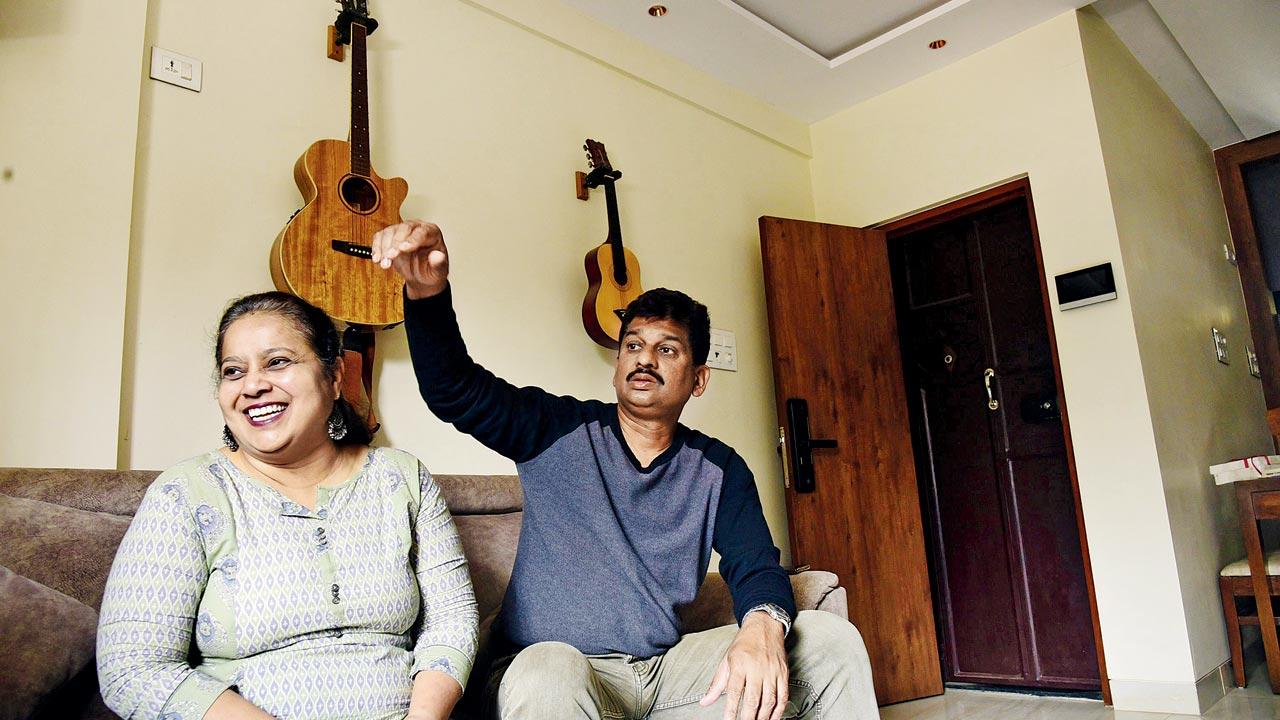 Educators Ivan Rodrigues and wife Lavita, parents of India’s all-rounder Jemimah Rodrigues at their home on Dr Peter Dias Road, Bandra. Ivan is also Gala’s coach. Pic/Atul Kamble
Educators Ivan Rodrigues and wife Lavita, parents of India’s all-rounder Jemimah Rodrigues at their home on Dr Peter Dias Road, Bandra. Ivan is also Gala’s coach. Pic/Atul Kamble
This is when Gala started taking a shine to cricket. “There was this one time when there was a recreational tournament in the area; Hurley joined one of the teams, and played really well. That’s when I felt that I should get her to train professionally.” Tanmay had turned to his friend, Vishal Karya, who owned a private ground in the neighbourhood and had some knowledge of the game, for advice. “He put me in touch with a coach, but that didn’t work too long,” he says. Sometime in 2017, Karya happened to run into Ivan Rodrigues, coach and father to India cricketer Jemimah Rodrigues, at a sports store. “Vishal mentioned my daughter to him, and also asked if he’d like to train his daughter Jemimah on his ground during her off season. He came a few days later, and witnessed Hurley’s skill first hand. Ivan sir immediately took her under his wings.”
Since school cricket is a great segue into professional cricket, Rodrigues suggested that the family shift her to St Columba Girls High School in Gamdevi, as her school didn’t have a girl’s cricket team. “It was a tough decision for us,” says her mum. “We live in Juhu and the school was near Grant Road… the boards were different too, she would have to move from IGCSE to SSC. I wasn’t sure how she would manage.”
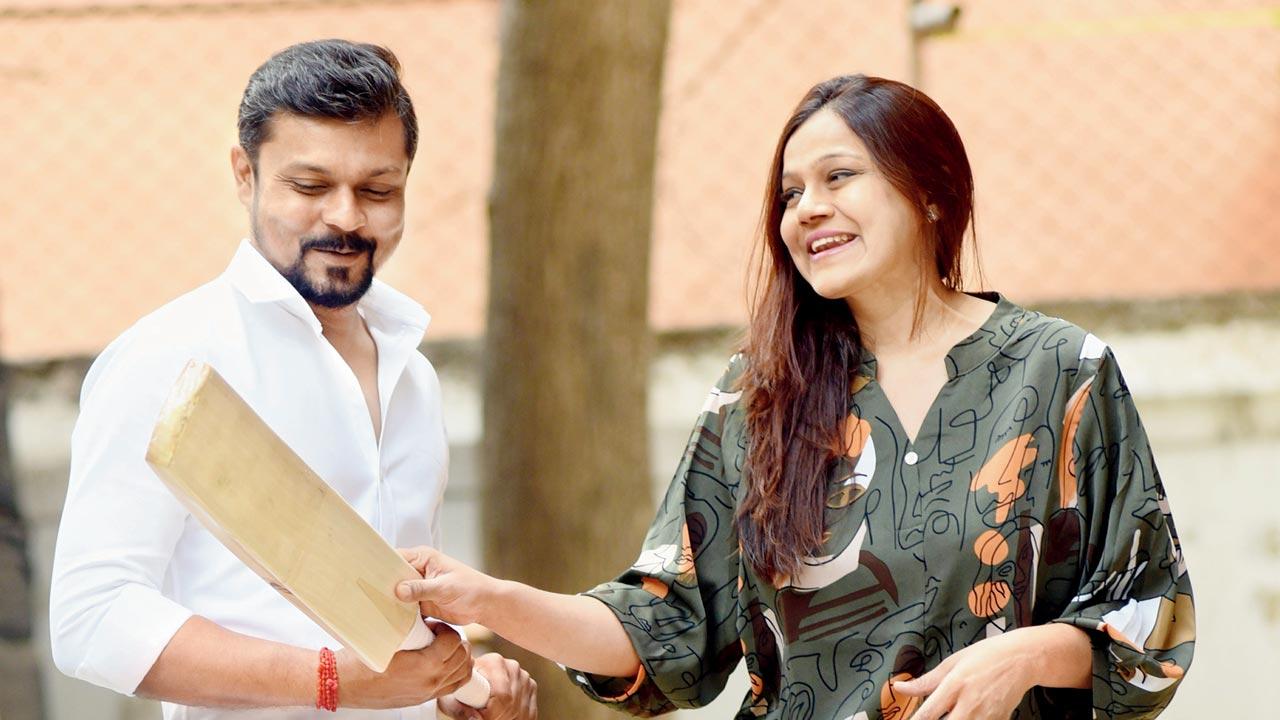 Pacer Hurley Gala’s parents Tanmay and Bhavika share a light moment with the mid-day photographer at their home in Juhu. Pic/Sameer Markande
Pacer Hurley Gala’s parents Tanmay and Bhavika share a light moment with the mid-day photographer at their home in Juhu. Pic/Sameer Markande
The year she joined St Columba, the school won several district-level matches. During a tournament conducted by the Mumbai School Sports Association (MSSA), Gala took a hat-trick and even scored a crucial 35. “The selectors spotted her at this match. After that she never really stopped,” says Tanmay. In 2020, just a few weeks before the pandemic, St Columba also beat Shardashram Vidyamandir, Dadar, to emerge champions in the Girls’ U-16 finals of the Mumbai leg of Mumbai Indians Junior 2020 Tournament. While Tanmay hoped that she would become a batter, her skills with the leather ball drew a lot of attention. The right-arm pacer, says Rodrigues, skipped the rigour most young and budding cricketers have to go through to make her senior debut for Mumbai. “I was confident that she would play for India very soon,” says Tanmay, who had to take a break from his family business four years ago, to be with his daughter. “Currently, Hurley has my entire attention,” he adds. The day we visited the family, Gala was in Ahmedabad with the U-19 India squad, which was being felicitated by Sachin Tendulkar at the Narendra Modi Stadium for the team’s World Cup win. “For me, my cricketing dreams started in 1983, but by winning this World Cup, you have given birth to many dreams,” Tendulkar told the girls.
With the ICC Women’s T20 World Cup 2023 in South Africa barely a week away, a lot is riding on Team India, which has an interesting mix of spin and pace options, and a strong batting line-up. Mumbai girl Radha Yadav, 22, a slow left-arm spinner, is among the star performers.
Her father Omprakash Yadav, a shop vendor, and brothers Deepak and Rahul continue to run their “chhoti si dukaan” in Kandivli, where Yadav was raised. When we arrive at the shop to meet Omprakash, he is hardly surprised. “The last time the T20 World Cup took place, there was a long queue of cameramen and journalists here… the neighbours thought something had happened to Radha Yadav’s father [me],” he laughs. India made it to the finals, but lost to Australia.
Omprakash, who is in his late 50s, sells everything from vegetables to biscuits and cigarettes at the makeshift shop, which he runs from 6.30 am to 10.30 pm.
For the longest time, the family had a jhopdi at the same spot. “When the builder redeveloped this place, he gave us a 200-sq-ft shop in the building behind. We realised that nobody would come and buy vegetables there [as it doesn’t face the road], so we decided to continue running the shop here. We live there now,” he says. The family recently opened another shop in the next building, which is incidentally named after the daughter.
Omprakash moved to Mumbai in 1989, and started working as a milk vendor, travelling daily between Kandivli and the Worli dairy. Since the commute was becoming cumbersome, he bought this shop in 1995. Yadav, who is the youngest of four siblings, was born here five years later. All his children, he says, were obsessed with cricket. He himself remembers playing gilli danda as a child in his village. “That perhaps explains my children’s fascination with cricket,” he smiles.
Yadav’s older brother Rahul remembers all the siblings going to play at the MCA ground in the neighbourhood, where the Sachin Tendulkar Gymkhana now stands. “I wanted to train professionally, but at the time my father could neither afford the fees nor buy the equipment,” he says. His sister Sonee, who Omprakash says, would have become a top class batsman, was also forced to hold back her dreams due to the financial situation. However, Yadav who was studying at Anandibai Damodar Kale Vidyalaya, got lucky. She was spotted by coach Praful Naik; he agreed to train her for free at the Shiv Seva ground. “Sab ittefaaq ki baat hai,” he says. Naik convinced the family to shift her to Our Lady of Remedy High School, so that she could play with a team. “From here she started playing at the district-level, and eventually got selected for Mumbai,” says Omprakash. She played for Mumbai in the 2014-15 season, but on her coach’s advice went on to represent Baroda, from where she almost immediately got selected for India. “Our family has had to make a lot of sacrifices—while my mother and Radha moved to Baroda, the rest of the family stayed here. But seeing her journey and how far she has come, makes us all very proud,” says Rahul. In the last T20 World Cup held in Melbourne, the spinner tore apart Sri Lanka’s batting order, restricting them to 113 and recording her career best four for 23. India won that match, and found a berth in the semi-finals. Rahul can’t wait for another such treat from his sibling. “With Radha, everything is possible.”
Another parent tethered to the hope that India will emerge victorious at the upcoming T20 World Cup is Rodrigues. The educator and cricket coach’s ambition to become a cricketer was realised by his daughter Jemimah Rodrigues when she first wore the India cap in 2018. The 22-year-old all-rounder’s smiling portrait in her Team India jersey hangs on a wall, right next to a shelf full of her trophies at their Bandra flat. “There are many more,” Rodrigues tells us. He grew up in Bhandup, and nursed a dream to play for Team India, but his father’s insistence that both his sons receive an education, meant that sports took a backseat. Despite securing a job as an aircraft maintenance engineer, Rodrigues remembers his heart continuing to beat for cricket. “I left that job within eight months, and then taught at the coaching institute [Scholars’ Coaching Institute] that was run by my father.” Rodrigues started to train his children early on, practising with them. “At the time, I had absolutely no idea about the existence of a women’s cricket team. My focus were the boys. Jemimah was very young, and would help us with fielding. But that’s where her training began.”
Since Bandra’s schools had some of the best cricket teams, the family moved out of their flat in Bhandup, and shifted base here, living out of a 10x10 room, which was given to them by Brother Manuel Ministries, a mission group, which they are part of. “The office of the ministry had a basement, which was used as a prayer hall. I installed a turf there, and the children and I would train here post-midnight, because that’s when I would get time after teaching at the coaching institute,” recalls Rodrigues.
At the age of eight, Rodrigues took Jemimah to the selection camp at Shivaji Park. Her bowling skills immediately got the attention of Kalpana Murkar, Ramakant Achrekar’s daughter, who was part of the selection committee. Jemimah’s cricketing journey began from there. “Though I was focusing on her bowling, Kalpana saw her as a batter, and promoted her as an opener,” he says.
What Jemimah needed though, was the backing of a school. She was a top-class performer in St Joseph’s Convent High School’s hockey team, but the school didn’t have a cricket team worth its salt—a prerequisite for many selectors. Rodrigues took on the mantle of forming one. “In the first year itself, the team reached the finals of the MSSA tournament,” shares Jemimah’s mother Lavita, adding that she started playing for senior’s Mumbai at the age of 13. At 13.5, she was part of India U-19, and by 17, she got to represent Team India. “I still remember that day. We got a call from one of the coaches saying that Jemimah had made it… my wife and I cried.”
Jemimah, he says, is a technical player. “She learnt to play the cover drive in a 10x10 room,” says the proud father, adding, “She continues to work hard. If there is a technical flaw in her batting, she will keep working on it, till she masters it. I have never seen her throw her wicket away.”
The WPL, he says, has come at a good time for women’s cricket. “There’s a lot of talent that’s available out there, but we aren’t working at the grassroots level… WPL will make that possible. It will also provide a good source of income for many players. The conversation around WPL has made others think about women’s cricket more seriously. I know clubs, which have now started paying women cricketers to play for them. This was unthinkable before; many of them used to play for free,” he shares. Not to mention the exposure that women players will receive. “They will learn how to soak and play under pressure, and of course rub shoulders with foreign players, from whom they will be able to learn new techniques. Also, imagine the large numbers who will come to watch women’s cricket… our girls will now be playing in stadiums filled with crowds and noise!”
90/1,000
Number of players who’ll be sold from a total signed up at the inaugural WPL auction on February 13
 Subscribe today by clicking the link and stay updated with the latest news!" Click here!
Subscribe today by clicking the link and stay updated with the latest news!" Click here!










